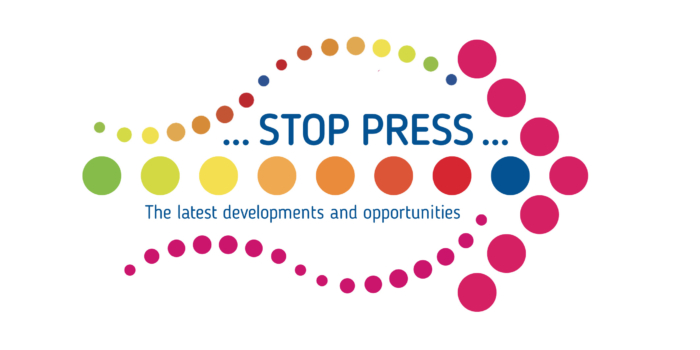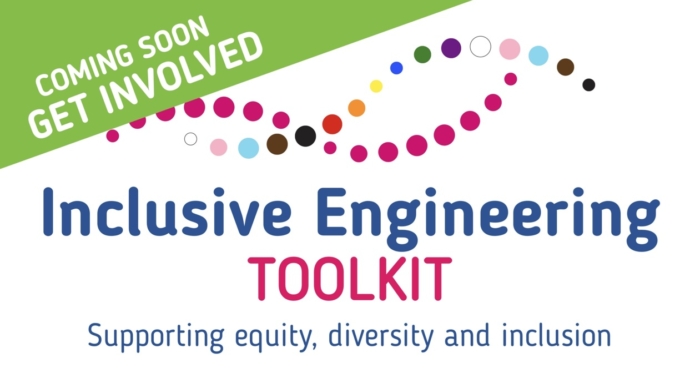Every year on March 4, World Engineering Day provides an opportunity to reflect on the invaluable role engineering excellence plays in tackling global issues in pursuit of the United Nations’ Sustainable Development Goals (SDGs). These 17 goals exist out of a necessity to address global crises that limit humanity’s collective health and potential. Given the scale and scope of societal challenges, we need more engineers equipped to tackle complex problems such as health disparities, climate disasters, and deteriorating infrastructure, to name a few. While engineering has given us longer life spans and other immeasurable benefits, World Engineering Day serves as an important reminder that there is still more to be done.
This year’s World Engineering Day theme, “Shaping Our Sustainable Future Through Engineering,” encouraged us to view sustainability as both a destination (the sustainable future) and an approach (shaped through engineering). Regardless of domain and scope, all engineering activities play a role in a sustainable future. From the materials and sourcing mechanisms used to the energy needed to create, transport, and disperse products and intelligence (artificial and natural alike), to working conditions across the engineering value chain, engineering activities have powerful implications. For a sustainable future, every engineering activity must be attuned to a broader set of performance metrics. This is what excellent engineering can be optimised to do.
As we reflect on the achievements of engineering—instant communication, massive mobility, medical breakthroughs, and innumerable sources of joy—we also recognise the responsibilities of excellent engineers to mitigate potential negative outputs, from toxic effluents in the water to biased data sets in computing to noxious particulates in the air. Excellent engineers foster the liveability of our world. They pursue progress that supports life today and for lifetimes to come.
Seeking Excellence Through Educational Re-engineering
Aligning engineering activities with our modern reality requires updating engineering education. Traditionally, engineers were taught to design for technological efficiency, durability, power, and function. But today’s engineers are being called upon to do much more. Ecological and societal impacts must be embedded in design requirements—not as optional considerations, but as fundamental principles within technological specifications. Engineers who embrace this modern vision demonstrate the core values of their profession—innovation, efficiency, and problem-solving—while improving lives today and for generations to come.
Graduating engineers must be equipped with sustainability skills and climate fluency, not least because the job market is demanding it. The rapid growth of sustainability-focused roles has led to a “Green Skills Gap,” as highlighted in LinkedIn’s 2024 Global Green Skills Report. Hiring statistics show that job seekers with green skills have a
competitive advantage—between 2023-24, the hiring rate for green talent in the U.S. was 80.3% greater than the hiring rate for talent overall (LinkedIn, 2024).
A Global Community Supporting a Shift to Engineering Excellence
Higher education institutions play a crucial role in closing the green skills gap, yet systemic change can be overwhelming. While educators and students are striving for progress, turning intention into action requires tangible solutions. Catalysed and supported by The Lemelson Foundation, Engineering for One Planet (EOP) is one initiative making this transition easier. By providing funding (in the U.S.) and open-access teaching resources (globally), EOP helps educators embed sustainability into engineering courses. The initiative envisions sustainability—encompassing social, environmental, and economic considerations—as a core principle in all engineering activities, from design to end of life. At the heart of EOP is the EOP Framework, an open-source resource featuring adaptable student learning outcomes across nine sustainability topics, including both technical and professional skills. The EOP Framework has been mapped to ABET and AHEP4 accreditation requirements and was co-created with voluntary input from experts across sectors. Since EOP’s launch in 2020:
· More than 50 institutions and hundreds of faculty members have used EOP’s resources to integrate sustainability into core and required engineering courses, reaching over 30,000 students.
· Villanova University has launched EOP-based faculty workshops on climate literacy, sustainability skills, and curricular change, and is translating the EOP Framework into Spanish.
· The Lemelson Foundation has partnered with the American Society for Engineering Education, ABET, and the National Science Foundation to support faculty innovation in sustainability education.
In the UK, several organisations have introduced initiatives to integrate responsible and sustainable engineering into postsecondary education:
· With support from the Royal Academy of Engineering and Siemens Digital, the Engineering Professors Council launched a Sustainability Toolkit in 2024. This toolkit includes teaching activities, project briefs, case studies, guidance articles, and a database of resources.
· In collaboration with the Royal Academy of Engineering, Engineers Without Borders UK offers resources like the Global Responsibility Competency Compass (to help individuals and teams develop skills for a changing world) and the Global Responsibility Reimagined Degree Map (to guide engineering departments in preparing students for 21st-century challenges).
These initiatives have emerged through close collaboration between engineering associations, educators, and industry professionals, with input from thousands of
individuals. Leaders of these efforts actively collaborate to reduce duplication, share resources, and maximise impact. With well-designed, thoroughly tested teaching tools and dedicated minds working together, educational re-engineering for a sustainable future is no longer as daunting as it once seemed.
A Call to Action: Engineering Excellence for a Sustainable Future
Engineering excellence has always been about optimising systems to deliver the best results. In the context of sustainability, this principle reaches new heights. A sustainable future through engineering is not only about minimising negative impacts and addressing SDGs—it’s also about creating solutions that are more efficient, cost-effective, and resilient over the long term. By combining technological excellence with sustainability principles, engineers are redefining what it means to build systems that stand the test of time.
As we move forward, we can be confident that the pursuit of engineering excellence and sustainability are not mutually exclusive—they are inseparable. World Engineering Day reminded us of the importance of investing time and resources into preparing engineers who are shaping this future and reaffirming our commitment to creating a sustainable world for generations to come.
Written by Cindy Cooper, Senior Program Officer, The Lemelson Foundation




